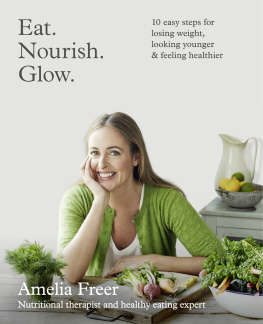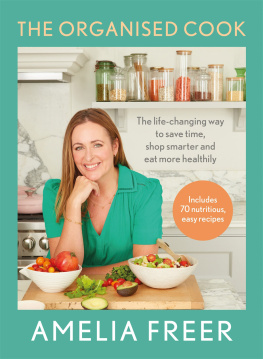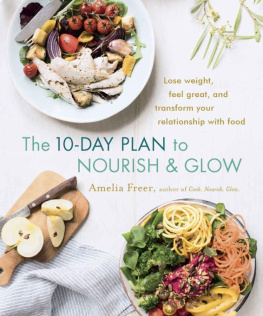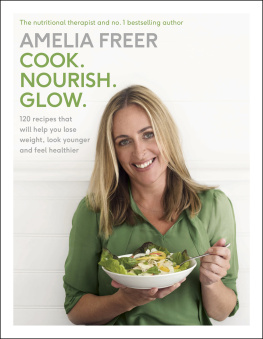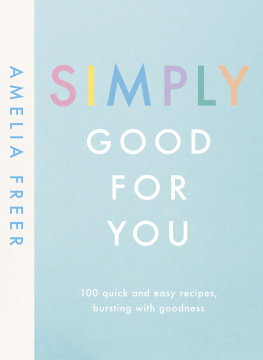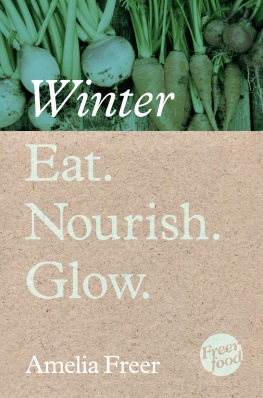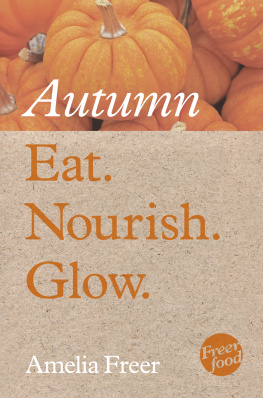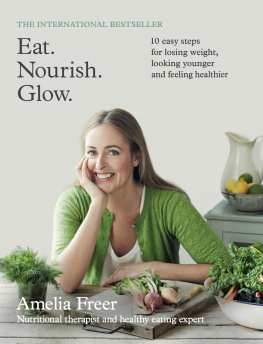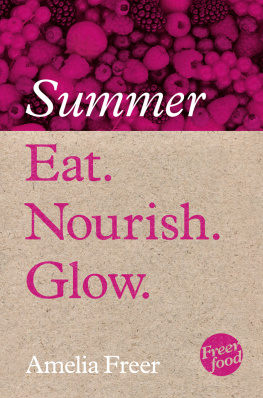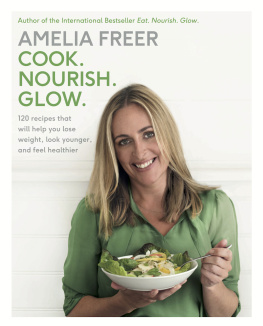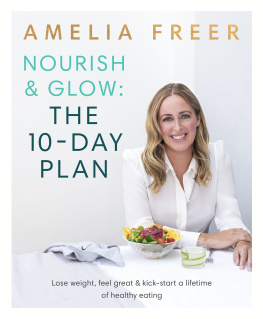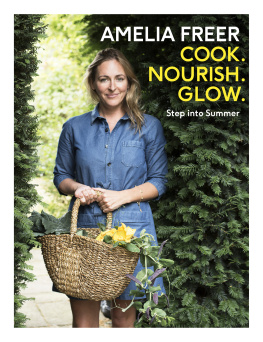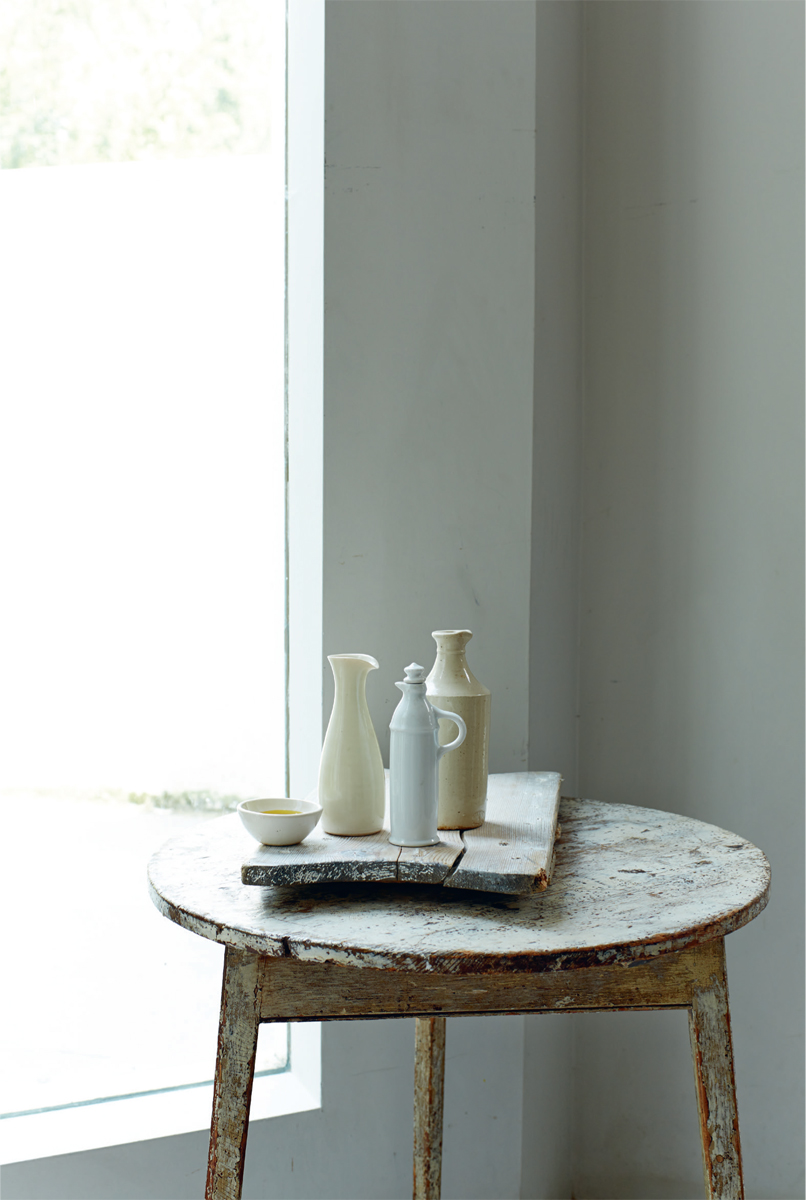HarperCollinsPublishers
1 London Bridge Street,
London SE1 9GF
www.harpercollins.co.uk
First published by HarperCollinsPublishers 2015
Text Amelia Freer 2015
Photography Ali Allen 2015
Illustrations Heather Gatley 2015
Amelia Freer asserts the moral right to be identified as the author of this work
A catalogue record of this book is available from the British Library
All rights reserved under International and Pan-American Copyright Conventions. By payment of the required fees, you have been granted the nonexclusive, non-transferable right to access and read the text of this e-book on screen. No part of this text may be reproduced, transmitted, downloaded, decompiled, reverse engineered, or stored in or introduced into any information storage retrieval system, in any form or by any means, whether electronic or mechanical, now known or hereinafter invented, without the express written permission of HarperCollins e-books.
Source ISBN: 9780007579907
Ebook Edition JANUARY 2015 ISBN: 9780007579914
Version: 2015-03-19
This book is dedicated to Dad.
Contents
Like a lot of people my age I was brought up in a household where my mum cooked our evening meals from scratch. But like all households, we resorted to the standard breakfasts of cereal or toast, and lunch was at school. I was slim and healthy as a child, but as a teenager I developed terrible acne and things started to get worse in my early twenties when I moved to London after university.
Back then I just ate for convenience. I didnt think about my food choices, nor link them to how I felt each day. To me, fast food always meant junk food like burgers or takeaways, but I was eating just another type of fast food without realising it in the form of pasta, ready-meals, croissants and sandwiches. Everything was quick, factory-made, processed and full of wheat, sugar and little else.
I remember waking up feeling tired and groggy, so I drank lots of sugary tea to perk myself up and grabbed a croissant, some toast or a wrap from a local or chain caf on my way to work. Lunch was a sandwich or baguette from the same place and I had chocolate in the afternoons with more sugary tea to energise me.
I was working as a PA to The Prince of Wales and I loved my job, but it was busy and demanding. I used to arrive home, exhausted (not because of the job it turns out but because of my terrible diet) and couldnt be bothered to cook so I would have cheese on toast or a plate of pasta with a glass of wine while slumped in front of the TV, or I would be out socially, which often involved eating pasta, bread, desserts and drinking wine. I felt rubbish, but day in day out, I made exactly the same food choices without any further thought.
How were my food choices affecting me? Well, I wasnt overweight, but I wasnt healthy either. I felt exhausted all the time. Literally, all the time. I woke up tired, I felt tired all day, especially in the afternoons, and I fell onto my sofa every night feeling tired. I also suffered from terrible irritable bowel syndrome (IBS). My tummy looked and felt like it had a football stuffed inside it most days, and my skin would still break out into what looked like teenage acne. I took quite a few courses of the drug Roaccutane and thats when my body just said enough. Recurrent colds and infections, shingles and low mood took hold. I was a mess!
I bounced from doctor to doctor and tried massage, acupuncture and hypnosis to make myself feel better but nothing helped. Sharing my frustrations with my flatmate one evening, who knew a lot about nutrition, she suggested I try cutting down on my wheat, caffeine and sugar habits and encouraged me to see a nutritionist. It felt alien and impossible to me but that first insight from my flatmate and the nutritionist I subsequently saw was the start of this incredible journey I have been on ever since.
As the nutritionist explained the effects food can have on how our body functions, a flame lit inside me and I knew I needed to learn about this for myself. At 28 I went back to college, taking a diploma in Nutritional Therapy at The Institute for Optimum Nutrition (ION) for four years. I was nervous being the age I was and starting again, but on the first day I came alive and knew I was in exactly the right place.
It was there that I started to look at food as medicine. Not as something to just quickly eat to keep hunger at bay, but as something that can nourish and protect us, and also help us to get the best out of every day instead of enduring every day as I had been. During the course I made many changes to my diet and began a mission to create meals that matched my new food knowledge and my health needs, but which also tasted great and comforted me in the way my old food habits used to. I hadnt had any fancy training as a chef; I just called it food assembly. I chose the ingredients I knew my body needed and then I chose the flavours. It didnt need to be complicated (see the ). For me it was about simplicity, enjoyment, taste and nourishment. I can never force myself to eat anything just because its healthy. It has to taste great as the saying goes, you can lead a horse to water Once I graduated as a nutritional therapist, I used all my old experiences and new knowledge to help my clients. I know how many of you will be feeling as you read this book and attempt to make changes to your own diet, as I have been there myself. I know how hard it can be to break food habits and get out of your comfort zone at home and socially, but it is possible. As you start to feel the benefits you will want to make more changes to your diet and lifestyle.
That was over 10 years ago and over that time my health has improved dramatically. My original practice in the North of England and my current practice in London have grown and thrived. I continue to study and learn as scientific research constantly evolves in nutrition and health, so I keep abreast of the information and trends and then adapt my knowledge to meet my clients needs. Oh boy, has my knowledge changed, and I know about the confusion and frustration that many people can feel about the constant fads and changing messages coming from the diet and nutrition industries. Sometimes I go to lectures and learn something new that makes my tummy turn as I realise it conflicts with what I was originally taught and what I have told clients in the past, but I love how rapidly and dramatically this area is growing and how more than ever before, nutrition and nutritional therapy is getting the much deserved attention it deserves. No longer are we focusing only on cures but now we want to know how to prevent the major illnesses of today. Instead of waiting to be fixed, we want to know how not to get broken in the first place. There is still a long way to go but I want to share some of the information and practices I have gathered over my journey to better health with you in this book.
I continue to advance my studies and Im fortunate enough to be currently studying at the Institute for Functional Medicine (IFM) in the United States. I completed my initial five days of training with them in 2011 on how to apply the principles of functional medicine in clinical practice and I now work with all my clients through this practice, which is a patient-centred and holistic approach to healthcare. No two people are the same and no two treatments or optimum diets are alike. However, there are guidelines that can apply to anyone and I use these to inform the 10 Principles outlined in the book.
Most notably, through my own experience of working with clients, I have learnt that knowing the science is not enough. I have learnt that each person that sits in front of me has their own unique health and life story. In order to accurately advise them, I must understand them and their journey, understand all the factors that influence their ability to make better choices when selecting their food and understand their emotional relationship with food as well as working hard to identify the underlying causes of their symptoms. Many want a quick fix and think its so easy for me to tell everyone what the perfect diet is or what the best supplements are to take. We are all individual and there is not one right diet for everyone. It took me quite a long time of experimenting and improving my diet over the years to get it right for me, so that I can be symptom free and feel my best. What I can say for sure is that eating food in its most natural form is the very best place to start. I have written this book with the hope that it helps you to become more conscious about the food choices you make and connect them to your health, and learn how to make changes to your diet for the long term. This book isnt a personal approach to your health, but I hope that it gives you the experience of working with a nutritional therapist such as myself, covering the most important areas that I have found essential to address with each of my clients.

